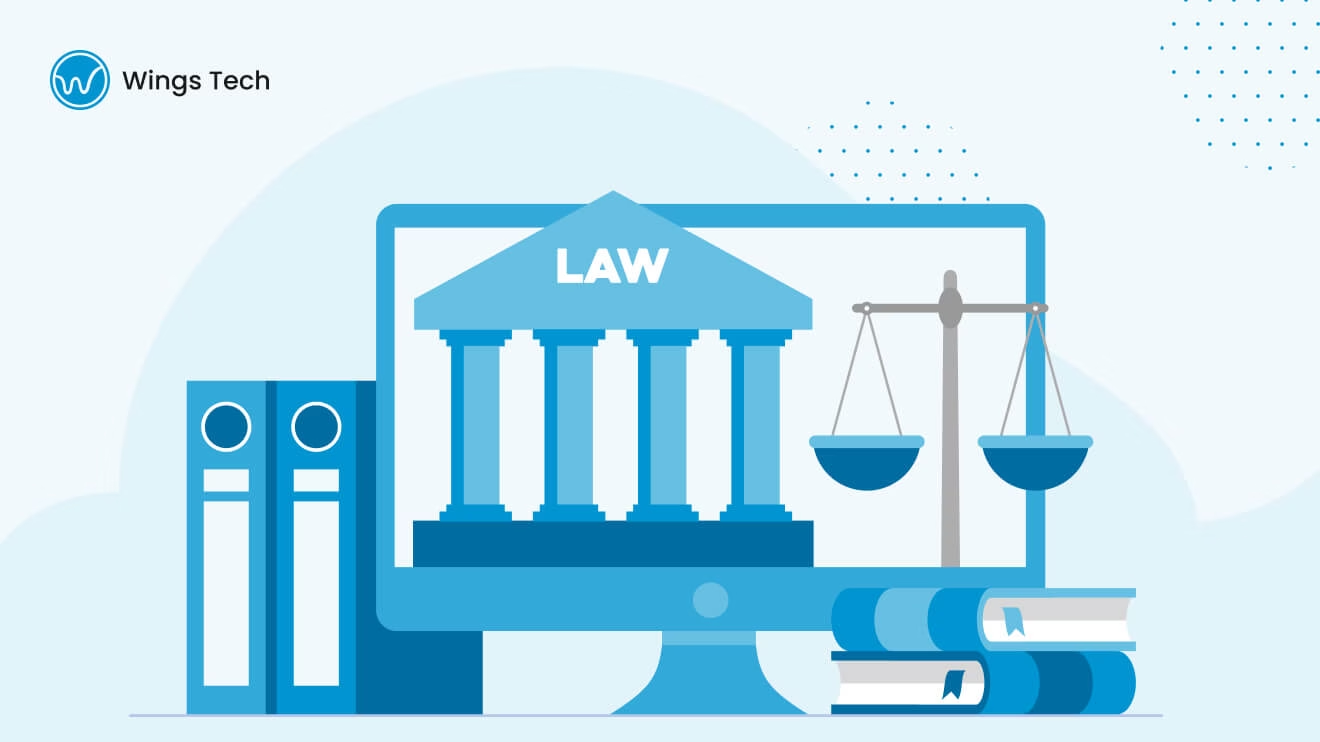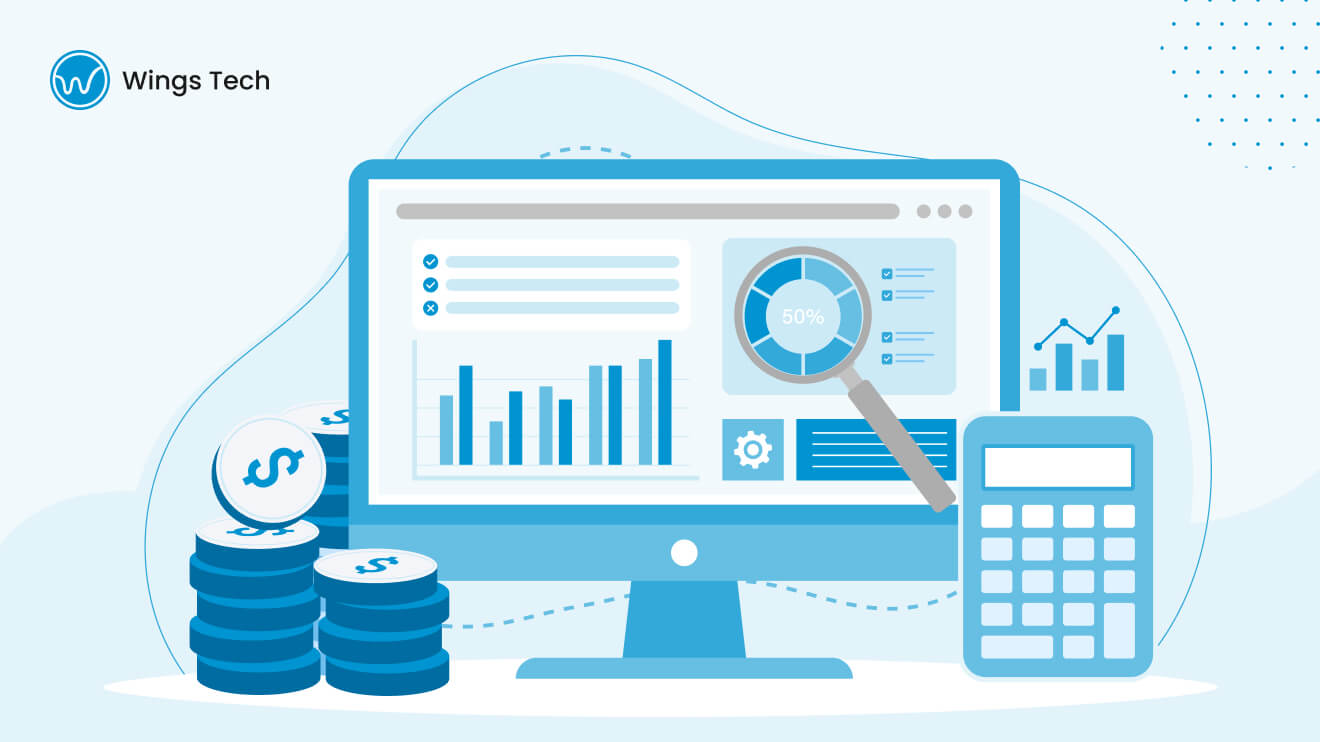Table of Contents
Legal website development is no longer a project merely for Silicon Valley firms. Every lawyer, with a beginning practice or a very popular one, needs legal website development as a fundamental business tool if they have ambitious goals beyond their office lobby. Today, even grandmothers are googling “divorce attorney near me” at 10 PM, and your legal practice should be more than a billboard.
88% of law firms use blogs to manage their websites, and 94% of legal firms today have a website, which means most of the legal sector is now online. You should be amongst those too. This guide is your detailed way to legal website development and is designed to create a 100% professional, court-room-ready digital presence.
What You’ll Learn from This Guide
- Why legal sites can’t be just “websites”
- The detailed process of building a legal website.
- The exact technology needed for legal website development.
- Most important characteristics that convert visitors to booked appointments.
- Trends that are shaping 2025 legal web design.
- Tactics for avoiding the most prevalent mistake
Why a Strong Legal Website Matters Today
Legal services are amongst the most trust-sensitive industries in the world and on the internet today. Your website for customers isn’t just a business card, but it’s a credibility scanner and a lead magnet. As a legal firm, you should not be thought of as an outdated firm, and legal website development is your first step towards building an online reputation.
What is Legal Website Development?
Legal website development is creating a custom website to meet the functional, ethical, and professional needs of legal professionals. It includes front-end design and backend development for legal web development, with efforts towards making sure that SEO, legal compliance, and a professional feel of the website are completely aligned with the modern web aesthetics in 2025.
Generic Websites vs. Legal Websites
Generic websites don’t sell products, and legal websites should ultimately sell trust. A Shopify template will not cut it here. Legal sites have customized functionalities like secure document uploads. Legal websites provide disclaimers, appointment scheduling, and data privacy features for the safety of the user data.
Legal web development cannot be fit into a simplistic niche and built with a cookie-cutter solution. Rather than a generic developer, a legal website developer understands the ins and outs of your industry and knows what features your clients expect. This way, your website does not look like a “budget template” out there amongst many other creatively superb websites.
Why Do You Need a Legal Website?
Build trust and credibility
If you are in the law industry, you know that the perception of a person or a product is half the verdict. A professional legal website that you have will set your reputation up before you meet the client. Your detailed bios, crisp design, and well-written content will show potential clients that you are not just another firm operating out of your home office.
Attract new clients through search engines
Before someone enters your office, they will check your website. You can now consider Google as your new receptionist, and your SEO optimized website will be the first thing they see. Without SEO, you do not exist anywhere on the map.
Highlight your legal expertise and services
Your customers should have enough information about your practice areas if you want to close them soon enough. Your practice pages are conversion magnets that show your services and the kind of law practice you do. Thus, no one looking for an immigration lawyer will come to you if all they need is a taxation lawyer for their problem. It filters out non-serious leads without delay.
Enable online appointment booking and case consultations
Nobody wants to play the call back-and-forth in 2025. Integrated calendars and consultation forms mean that clients can book on their terms and also see your availability without pestering your receptionist.
Process of legal website development
Step 1: Requirement analysis – Understanding the needs of lawyers
As there is discovery in the legal industry, there is also a requirement analysis phase in our industry, where we understand your firm’s goals. Along with your goals, what we understand in detail is your audience, practice areas, and competitors, to plan your brand positioning on your website.
Step 2: Planning & design
Design isn’t just about pretty buttons. It’s the journey of guiding your visitor from ‘interesting’ to booking a consultation with your firm. To make this happen, your website needs clean typography and mobile-responsive design, plus an easily navigable website that users can scroll through without unnecessary friction.
Step 3: Development & integration
This is where the coding happens. From setting up the CMS to integrating tools like Calendly or some secure client portals, this stage is building up your infrastructure.
Step 4: Security & compliance
Between client confidentiality and GDPR rules, legal sites cannot cut corners in terms of security updates. If your site shows ‘this URL is not secure’, there is are high chance that your customers will not trust you with their high-risk data or cases. SSL encryption, CAPTCHA forms, and regular backups are non-negotiable in legal website development.
Step 5: Testing & deployment
After developing your legal website, your legal site gets stress-tested as hard as your associate in trial prep. We test your speed, compatibility, broken links, accessibility, and UX with a microscopic eye to ensure that it stands strong against high traffic and any scaling plans going forward.
Step 6: Maintenance & updates
The internet does not sleep, and neither should your maintenance team. With regular plugins, security updates, and figuring out our security loopholes, we keep your legal website up to date throughout its shelf life.
Technologies for developing legal websites
We talked about the process of legal website development, now we come to the actual technology that is used in the process.
Front-End technologies
Think of HTML5, CSS3, and JavaScript as your courtroom attire—they shape what users see and experience. Clean code ensures your site doesn’t just look good but behaves like a professional.
Backend options
PHP and Node.js handle what users don’t see—data storage, server logic, and integrations. WordPress is a common backend option, not because it’s trendy, but because it’s adaptable and secure when configured properly.
CMS platforms for lawyers
WordPress, Wix, and even Webflow (if you’re feeling modern) allow for manageable content updates. No need to call IT every time you win a case and want to brag about it online.
Security tools
SSL certificates, two-factor authentication, and GDPR compliance aren’t just good-to-haves; they’re table stakes. Encryption is the digital equivalent of attorney-client privilege.
Key features of a legal website
Practice area pages
Think of these as your digital billboards. Each page must speak to a specific audience segment with clarity, confidence, and just enough legal lingo to sound authoritative, without losing the average reader.
Lawyer profiles & credentials
Humanize your firm. Add faces to names, law schools, bar admissions, and even a personal note on why you practice law. It’s not ego—it’s credibility.
Blog or legal resource section
The blog is your silent marketer. Answer common questions like “What’s the difference between a will and a trust?” or “Can I sue my HOA?” and you’ll win Google’s algorithm and hearts.
Online appointment scheduler
Time is money. Automated booking tools save you admin hours and give clients the convenience they’ve come to expect.
Secure contact forms
Ditch the email links. Use contact forms that encrypt submissions and validate input so your inbox isn’t filled with spammy “SEO Experts” from suspicious domains.
Client testimonials & reviews
Social proof works. Showcase reviews from real clients (with their permission) to build trust without sounding like a sales pitch.
Live chat or chatbot integration
AI bots can answer FAQs, triage leads, and schedule appointments while you’re in court. Let the bots work while you bill.
Best practices for legal website development
Use clear legal language & easy navigation
Skip the jargon. Speak plainly. Your site isn’t a bar exam essay—it’s a conversation starter.
Optimize for local SEO and voice search
People search for “lawyers near me” more than “top-tier litigators.” Get listed in local directories, optimize Google Business Profile, and make sure Alexa understands what you do.
Maintain high website security standards
SSL, CAPTCHA, firewalls, not flashy, but absolutely necessary. Think of them as your digital paralegals working 24/7.
Include legal disclaimers and a privacy policy
Avoid getting sued for trying to help people avoid getting sued. Disclaimers keep expectations clear and protect you legally.
Regularly update blog & case studies
Google likes fresh content. So do visitors. A blog that hasn’t been updated since 2020 is a red flag. Showcase your wins, post insights, and stay relevant.
How much does legal website development cost?
Factors that influence pricing
Custom designs, complex functionality, integrations, and the developer’s experience all add to the price tag. Templates are cheaper but may leave you indistinguishable from your competitors.
Custom design vs templates
Custom: Unique, scalable, tailored. Template: Faster, cheaper, sometimes lazy. Pick based on your growth goals, not your nephew’s opinion.
Number of pages & features
A five-page brochure site will cost less than a 30-page SEO-rich portal with client login, blog, and appointment system. Count your features before cutting the check.
CMS vs custom-built
CMS (WordPress) keeps content edits easy. Custom-built sites give more control but require a developer for every small tweak. Decide based on your in-house capacity.
Maintenance & hosting costs
Monthly costs can range from $50 to $500, depending on the size, speed, and security needs of your site. You can’t host a Ferrari in a trailer park; choose accordingly.
Law firm web design trends in 2025
Minimalist and modern layouts
Clean interfaces are in. Less clutter, more clarity. Typography speaks louder than gradients.
AI chatbots for initial consultation
Initial screening, FAQs, and appointment setups are now handled by bots that work while you sleep, without overtime pay.
Video introductions & explainer videos
People buy from people they trust. A one-minute intro video builds rapport and reduces that intimidating “lawyer wall.”
Virtual meeting integrations (Zoom, Google Meet)
The future is remote. Seamless integrations mean no more awkward “Can you hear me now?” moments.
Dark mode and accessibility features
Accessibility isn’t optional. Features like dark mode and screen reader support make your site inclusive and legally compliant.
How Wings Tech can help you develop a legal website
WingsTech has specialized knowledge and comprehensive digital solutions that make it the best for legal website development. They offer dedicated Legal Software Development Services with robust case management platforms, which ease tracking, scheduling, and updating of cases through powerful but user-friendly integrated tools.
Wings Tech is a reliable web and mobile app development company offering custom digital solutions to achieve effective business growth. They specialize not only in development but also provide strategic content marketing services that increase brand visibility with engaging content that brings traffic, leads, and conversions.
Moreover, they offer professional UI/UX design services, developing user-centric responsive designs both for web and mobile applications. This holistic approach ensures law firms have more than just functional websites but complete digital solutions, improving user experiences using integrated marketing and design expertise.
Wrapping up,
Legal website development isn’t about jumping on a digital trend. It’s about future-proofing your firm. In a space where trust, visibility, and professionalism dictate your pipeline, your website becomes your loudest advocate. Whether you’re just starting or scaling up, investing in a professionally developed legal site is your first step toward lasting digital credibility.








